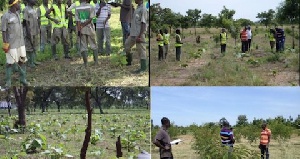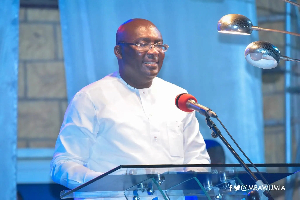Stakeholders of the Savannah Accelerated Development Authority Millennium Villages Project (SADA MVP) have been urged to work towards owning the project since it is due to end in December 2016.
The Project, which started in January 2012, has so far implemented programmes in education, health, agriculture and road with its stakeholders spread across 35 communities in the Mamprugu Moaduri and West Mamprusi districts of the Northern Region and the Builsa South District in the Upper East Region.
Addressing the stakeholders at a meeting in Bolgatanga, the team leader of the MVP, Mr David Sumbo, stressed the need for the stakeholders to get prepared adequately to own the project and sustain its implementation after it had ended.
Mr Francis Avonsige, the Coordinator of SADA-MVP in charge of Education, stated that before SADA-MVP intervention, the educational sector in the operational areas was quite deplorable but had improved due to the positive impact the programme made in the area.
He said the Project had built schools with older ones renovated and provided with furniture.
The schools have also been provided with ICT centres furnished with computers and projectors. Teachers’ quarters have also been built to enable teachers stay in the area to teach effectively.
Textbooks and exercise books including sanitary pads are also being provided periodically for girls to encourage them to go to school regularly.
He stated that the Project had also built the capacity of many untrained teachers to occupy vacancies in the classrooms and the training was still ongoing.
Mr. Avosinge mentioned lack of adequate supervision of teachers by Circuit Supervisors as one of the major challenges facing education in the area and though the project provides some incentives for them to buy fuel to go round to supervise, majority of them had failed to do that.
On the health front, a lot of Health facilities had also been built and old ones renovated and provided with beds and solar lumps.
The Project had also procured two four wheel drive ambulances to service communities.
Motor tricycles popularly known as “motor kings” have also been provided to help convey sick persons who are in critical condition, particularly pregnant women to health facilities in the project cluster.
The Project had also recruited retired midwives for some of the health facilities and is sponsoring student nurses who would be made to stay in the area and work. In terms of road infrastructure, 86km of roads in the project area which were in a deplorable state had been spot improved including the provision of 65 new culverts.
Click to view details



Business News of Friday, 28 November 2014
Source: GNA

















